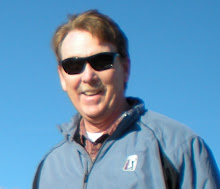One of the first hokey counseling techniques I learned in college was the JoHari Window, supposedly named after its two creators, Joe and Harry. It's a graph with four quadrants: 1) what you know that
 |
| Pickles were our only vegetable for one memorable meal |
you know; 2) what you know, but you don't know that you know (the taken for granted knowledge); 3) what you think you know, but you really don't know (your pretensions); and 4) what you don't know that you don't know (your blind spots). The goal of self-reflection is to increase the first window, what you are confident that you know, and decrease the third and fourth, what you don’t know.
I find that international travel is the best way to discover what you think you know that you really don't…about the host culture, about your home culture, about yourself. When you encounter a foreign culture's customs and norms, you have a chance to learn about your own culture and its different ways of doing things that you take for granted and have never thought about.
 |
| No horse carts: One of those "Toto..." moments |
It's those moments when you say to yourself, "Toto, I've a feeling we're not in Kansas any more." You learn about the wonderful, beautiful foreign culture that you find so fascinating and dazzling and also learn about yourself.
 |
| Kent's picture of the sea, Amalfi Coast, Italy |
My travel quote for today from my travel journal is from one of the oldest travelogues in history: by Homer: “They change their climate, not their soul, who rush across the sea.” For me the purpose of travel is to change your soul, or at least to expand your knowledge of the other culture and of yourself. And expanding what you know about yourself changes your soul.
So I am impatient with the “ugly American” type of traveler. However, the “ugliness” is not a uniquely American feature; I’ve seen it among Germans in Italy, Spanish in America, and Americans in Paris. The “ugliness” is a cultural ethnocentrism, "For some reason, the [American] people I meet in my country are not the same as the ones I knew in the United States. A mysterious change seems to come over Americans when they go to a foreign land. They isolate themselves socially. They live pretentiously. They're loud and ostentatious." (from the novel, The Ugly American, thanks to Wikipedia (http://en.wikipedia.org/wiki/The_Ugly_American) ).
These travelers, no matter where their passport is from, are blind to what they don’t know. And they don’t know how isolated, pretentious, loud and ostentatious they are.
 |
| Our Romanian Rroma friends |
And they don’t know what they are missing from the local culture. They think the floor show of folk traditions IS the culture, and they never get invited into a local person’s home to see their dowry room or their workshop or whatever makes them proud to be a Romanian.
So “Discovering [What I don’t know] about Romania” is both "Discovering About Romania" and "Discovering What I Don't Know." At the same time a reflection on Romanian experiences and “what I don’t know about myself that I learn from encountering foreign ways in a foreign land.”
 |
| Never seen this traffic sign in US |
 |
| The kids discovered that we have a cellar! |
 |
| EU bumper sticker; notice some non-EU flags? |






Exactly- I found myself quoting this just the other day, actually. I was speaking with a friend about living abroad, and had to pull up your blog. Thanks so much for all of the insight-
ReplyDelete